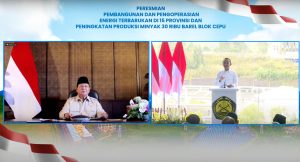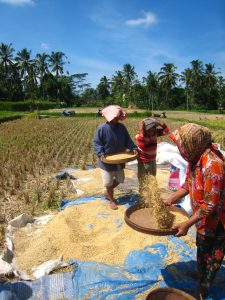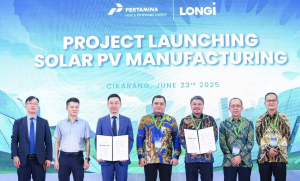As the world confronts intensifying climate threats, persons with disabilities (PWDs)—an estimated 1.5 billion globally—remain largely overlooked in climate policy and disaster planning. Despite growing awareness of climate justice, policies and practices continue to overlook how the climate crisis disproportionately affects disabled individuals, particularly in urban environments.
A new paper by Farhan Helmy, President of the Disability and Elderly Movement (DILANS-Indonesia)—a movement advocating for persons with disabilities and elderly people—highlights why inclusivity is a matter of justice and essential for effective climate resilience.
Persons with disabilities are more vulnerable to climate-related hazards such as floods, heat waves, and extreme weather events. Physical mobility challenges, reliance on assistive devices, and often inaccessible public infrastructure increase their risks during disasters. Yet, climate preparedness or emergency response plans rarely address their specific needs.
“When a flood hits, there’s nothing I can do without help,” said Farhan, who uses a wheelchair. “The system is simply not built for us.”
Research from the Inclusive District Platform (IDP) in Sumur Bandung, West Java, reveals a concerning gap: while 56% of disabled respondents were aware of climate change, their actual participation in mitigation or adaptation efforts remains minimal. The reason? Systemic exclusion—both informational and infrastructural.

Why inclusivity matters in building resilience
Farhan argues that inclusivity should be a foundational principle of climate governance, not an afterthought. At its core is the idea of dignity, recognising every person’s worth and right to participate in society.
This principle is reflected in the rallying call, “Nothing About Us Without Us.” Policies and programs designed with marginalised groups in mind, not just for them, are more likely to be effective, equitable, and sustainable.
“Imagine that globally there are 1.5 billion people with disabilities, and around 23 million in Indonesia,” Farhan said, explaining that at the same time, granular, disaggregated data—essential for effective planning—is lacking.
Ignoring this demographic in climate policy is not just unjust; it is strategically unsound. Effective resilience requires inclusive participation, accurate data, and accessible infrastructure. “There are no records of people with mental disabilities,” said Farhan.
Beyond policy and data, PWDs face significant digital and physical barriers. Many digital platforms that share climate or disaster information do not meet accessibility standards, such as the Web Content Accessibility Guidelines (WCAG). This creates a digital divide that hinders access to life-saving information.
Likewise, urban infrastructure often lacks ramps, tactile paths, or audiovisual cues, making it nearly impossible for PWDs and the elderly to evacuate safely during emergencies or even access essential services in everyday life.
To students of the Indonesian International Islamic University (UIII) on Wednesday, April 30, Farhan shares a story of an elderly person with poor vision who can finally visit the mosque after the community independently built a tactile path for the blind. “Something as basic as guiding blocks for the blind costs little for the local government,” he said, adding that such public expense is still very hard to approve.
Inclusive data drives better climate policy
One of the most fundamental issues is poor data. Official sources such as Indonesia’s census (BPS), social welfare databases, and national poverty registries often lack accurate or inclusive data on PWDs. Many fail to account for the diverse range of disabilities or are not disaggregated by age, gender, or location.
This invisibility in data translates into invisibility in policy. Government planning processes often exclude people with disabilities simply because they are not “counted” properly in the first place.
The Inclusive District Platform (IDP), piloted in Bandung, Semarang, and Yogyakarta, showcases how inclusive, locally grounded data can reshape climate planning. Using internationally recognised standards like the Washington Group on Disability Statistics, IDP collects detailed data on disabilities and overlays it with geospatial information.
“DILANS develops the data, and we map every point of areas that persons with disabilities cannot access. We offer this data to the government,” said Farhan.
This system not only informs policy but empowers local governments and communities to co-create solutions—whether improving public infrastructure, tailoring disaster responses, or advocating for accessible transport.
What makes IDP powerful is its adaptability. Designed with open-source tools and community input, it provides a blueprint for other cities, especially in the Global South, to replicate and learn from. The project goes beyond data to include grassroots programs like inclusive yoga, arts therapy, sign language classes, and community tourism, demonstrating that building resilience also means strengthening mental health, cultural identity, and social connection.
Finally, Farhan reiterated that inclusion is not charity—it’s justice. Data, dignity, and participation are not optional—they are the foundation of a climate-resilient society. Without them, we risk leaving millions behind. (nsh)
Banner photo: Image generated by OpenAI’s DALL·E via ChatGPT (2025)













